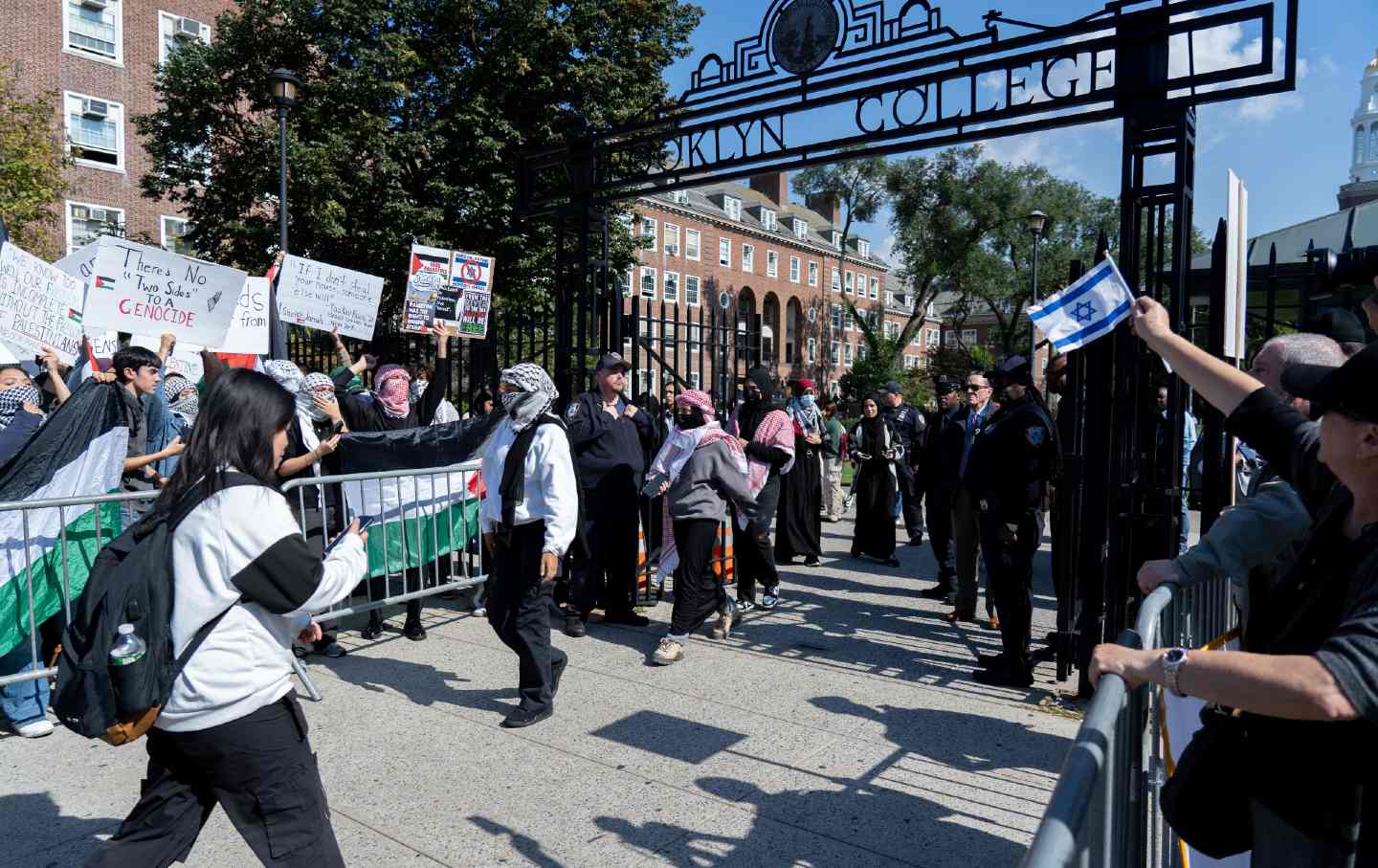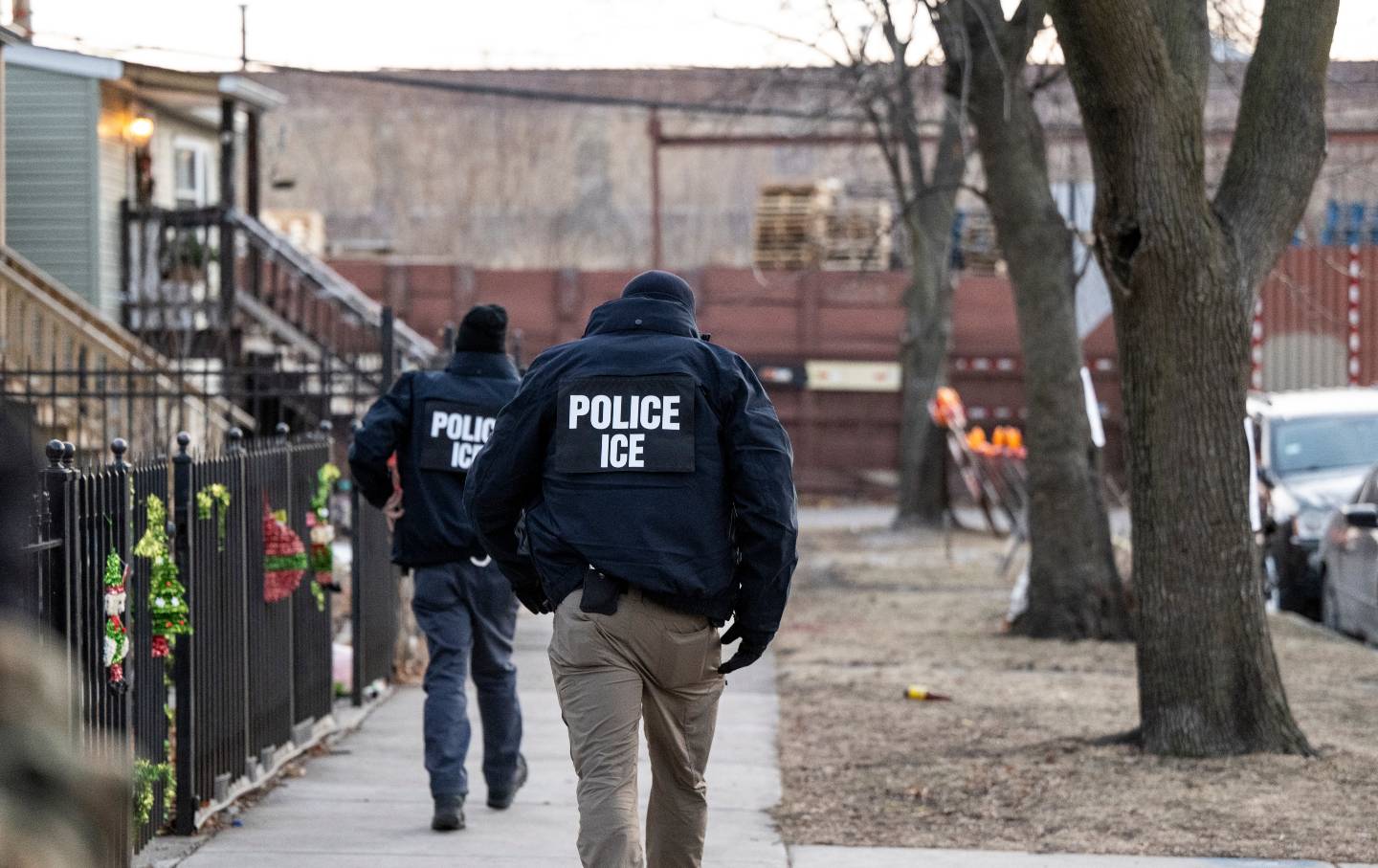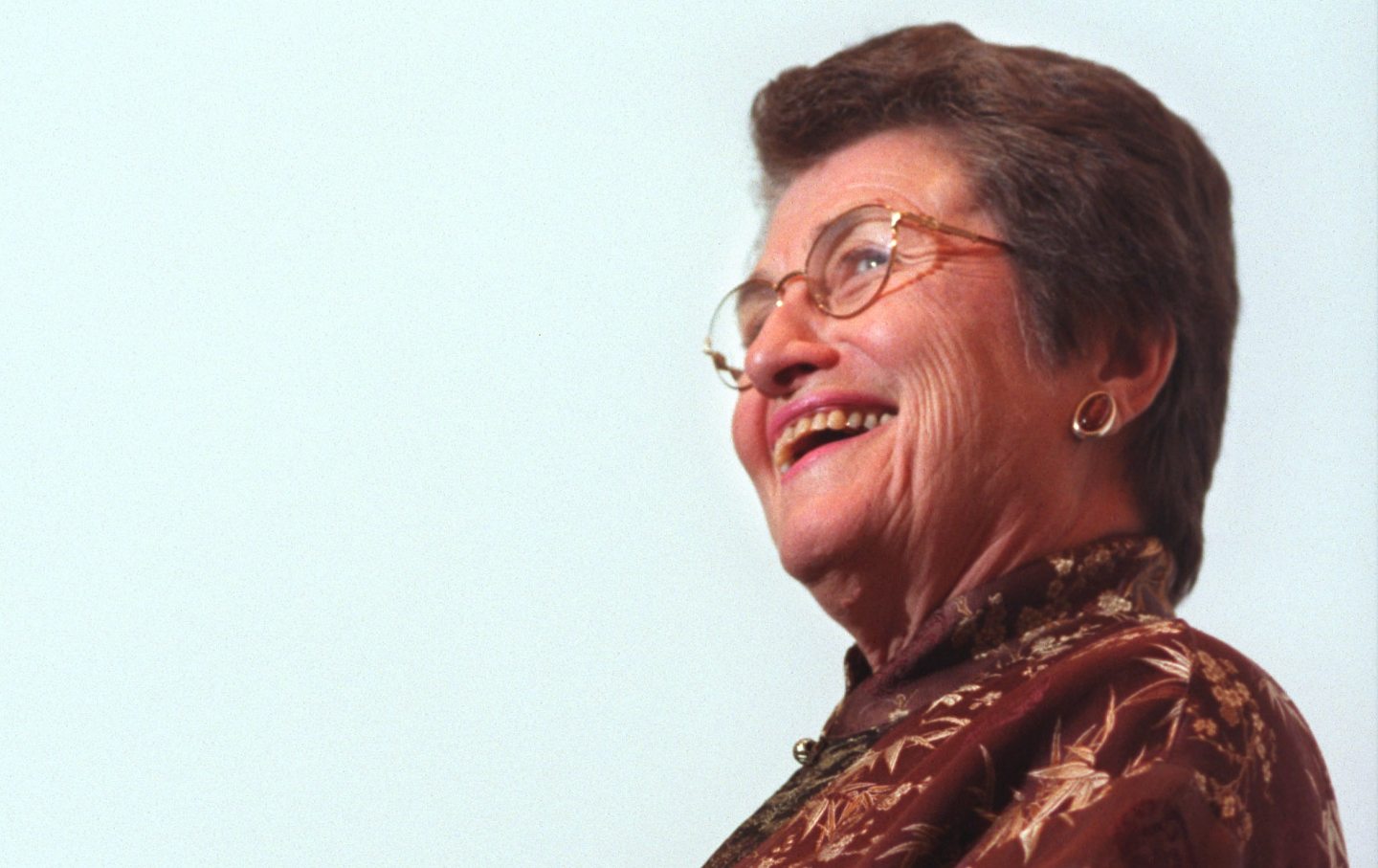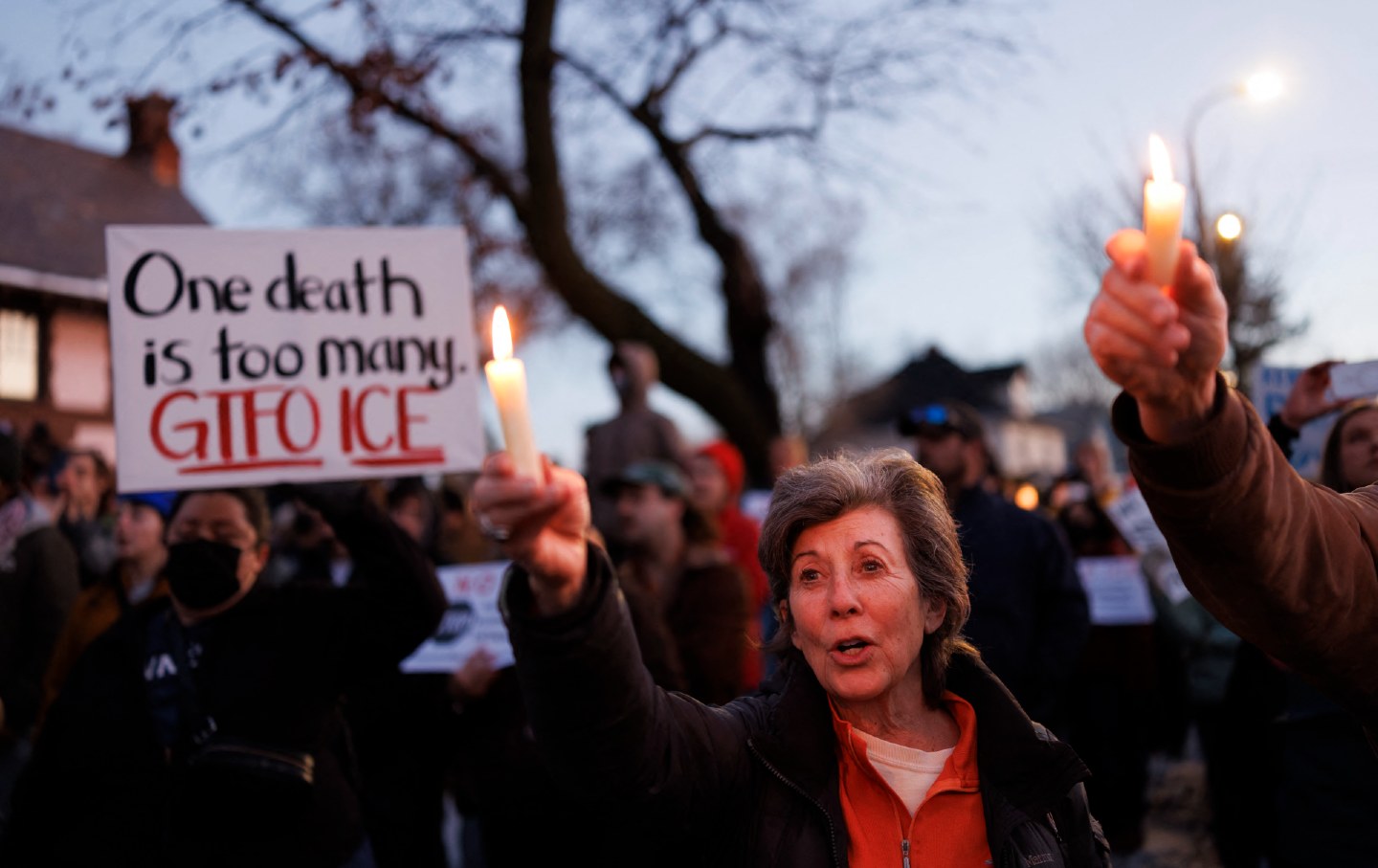Brooklyn College’s President Is Absolutely Not Targeting Muslim Students
Brooklyn College’s President Is Absolutely Not Targeting Muslim Students
A response to Jeanne Theoharis.

Colleges across the nation have been in the headlines from Cornell to Harvard, Columbia to the University of Pennsylvania for their demonstrations and counter-demonstrations regarding the Israel-Hamas war that began on October 7. Brooklyn College perhaps has not been in the news as much, but it has been no less affected by this conflict.
Brooklyn College has a diverse student population with active Jewish, Arab, and Muslim communities. Many have family over there—Jewish and Arab/Palestinian. Our professors work hard to make all our students feel comfortable on campus. The college is an interesting microcosm of the conflict within a small commuter campus where students go back to their neighborhoods and are isolated. Unlike other schools, ours has a large Mizrachi Jewish population, many of whom still have living family memories of life back in the Arab countries from which they come, and many still speak Arabic at home.
Brooklyn College is a home to all our students, whether they are from Caribbean, Latino, Arab, LGBTQ, South Asian, Black, Muslim, Jewish, or AAPI communities. That is why I was so shocked to read Jeanne Theoharis’s article titled “One of New York’s Most Vital Colleges Is Targeting Muslim Students.” As a professor who has taught at Brooklyn College for over a decade, I can attest that this claim could not be further from the truth.
In her article, Theoharis curated a misleading narrative of recent history at the college to condemn President Michelle Anderson. Here, I’d like to offer a more complete history of that time, in the hope of shedding light on a more complex and accurate truth.
One of Anderson’s first acts as president in 2016 was to establish the “We Stand Against Hate” series, which has brought dozens of speakers and events to campus over the ensuing years. The goal of the series is to create respectful dialogue, deepen knowledge, and enhance understanding. The most recent event was a September 28 dialogue between a rabbi and a Palestinian peace activist, which Anderson personally introduced. A desire to increase understanding and compassion across our differences—a rejection of “only one perspective”—is the true sin that has brought Anderson under attack.
Anderson has been a strong advocate for Muslim students. She supported and attended the students’ iftars; her administration installed a Wudu station for Muslim students on campus; and she has advocated for rescheduling classes during Eid, similar to what is done on Rosh Hashana, Yom Kippur, and Passover. She has also been a strong advocate for other minorities on campus, including Jewish and LGBTQ students.
As we all know by now, on October 7, Hamas committed the most horrific massacre of Jews since the Holocaust. Hamas’s savage attack on Israeli civilians—raping, mutilating, killing, and taking hundreds of hostages, from toddlers to the elderly—was an act of brutality that looked nothing like modern warfare but more like the pogroms of old.
On October 10—the first day back to campus thereafter—President Anderson issued a statement condemning the massacre. Jewish students also held a vigil to mourn the dead and pray for the safety of captives, which I attended. To reserve space on the East Quad of campus for the vigil, students had to follow campus protocols. There was paperwork to fill out, two meetings with Student Affairs, and restrictions to accept, such as a prohibition on megaphones while classes were in session.
Once the vigil began, members of Students for Justice in Palestine (SJP) decided to protest, and they brought a megaphone. Jewish students quickly found it hard to hear their own prayers, as protesters yelled: “Resistance is justified when people are occupied!” “From the river to the sea, Palestine will be free!” and “There is only one solution: Intifada revolution!” To the Jewish students’ great dismay, campus public safety officers did not prohibit the protest, but simply kept the vigil and the protest apart. The campus in no way favored Jewish student speech.
I teach a Talmud class that started as the vigil ended. My students were visibly shaken. One was crying. Another said he wasn’t sure he would ever feel safe on campus again, and wasn’t sure if he would return. Everyone recognized that what they experienced changed how they perceived their safety as Jews both on campus and in America. I held it together, but then, like many of my students, went home and cried.
Theoharis alleges that President Anderson denied Muslim students’ right to free speech by refusing to allow their October 12 rally in support of Gaza to be held on campus. On October 11, SJP announced that it was going to hold a rally on the East Quad of campus the following day. When SJP learned the protocols for reserving space on the Quad, which apply to student groups equally, they decided it was easier to gather a few yards away, just outside the campus gates between the East and West Quads, which—because it was legally off campus—would not require coordination with Student Affairs. As the area through which students and faculty funnel from one quad to the other, it also had the advantage of being more centrally located. SJP reworked its poster to announce its new spot. Anderson had nothing to do with the location of the rally, and the campus in no way disfavored Muslim student speech.
Meanwhile, many Jewish students were in a state of panic. If vitriol was spewed for just reciting prayers for the dead, what would happen at the larger SJP rally the following day? And with the rally being held at the gates between the two quads, would they be able to move safely between their classes? Some students with pending midterms frantically e-mailed their professors but received no response. They also e-mailed President Anderson, requesting that she make an official statement that they would not be required to come to campus during the SJP rally. Anderson was also receiving a flood of e-mails from concerned citizens who accused the college of advocating the message of student groups they perceived as supporting Hamas.
Popular
“swipe left below to view more authors”Swipe →In response, Anderson issued a second statement, quoting the CUNY chancellor’s message condemning Hamas and any rallies in support of it, and assuring students that they did not need to come to campus if they felt unsafe. Theoharis alleges that this statement associated the SJP rally with Hamas and thereby put Muslim students at risk.
Theoharis notes that SJP asserts that it “has never endorsed the actions of Hamas, or any militant group in any of our protests, nor will we ever do so in future events or programs.” In fact, however, a video of their October 12 rally shows a spokesperson praising the massacre around 40 or 43 minutes in. He said, “On October 7, the Palestinian resistance have announced the Al Aqsa Flood Operations,” using the Hamas name for the attacks, to cheers. He continued, “The least we can do is stand with our Palestinian resistance, who are our heroes, who are our lions, as they are defending Palestine.”
The speaker was repeating talking points from the “National SJP Toolkit,” instructing students to hold rallies in support of October 7, which it called “a historic win for the Palestinian resistance,” and to rebrand Hamas murderers as “the resistance in Gaza,” and its victims as “illegal Israeli settlers” and “occupation soldiers,” even though they were civilians—many of them elderly and children—living within the 1948 borders of Israel, not in the Occupied Territories.
It is likely that not everyone at the rally agreed that Hamas terrorists are heroes. In any event, the few dozen who attended were but a tiny fraction of our students. Muslim students are correct to insist that they not be associated with Hamas solely on the basis of their religion. As President Anderson cautioned in a November 2 statement, “We must never assume a person’s political beliefs on the basis of their religious or ethnic identity.”
Astonishingly, a New York City Council member who came to the rally on October 12 brought a gun with her. The councilmember was arrested and had to surrender her gun that night. Theoharis argues that Anderson spoke with the councillor before the rally and failed to condemn her actions afterward. At the October Faculty Council meeting when this charge was first lodged, Anderson said she had never spoken to the councilwoman and then she unequivocally condemned the bringing of any gun to any protest.
We must not let extremists set Muslim and Jewish students against each other or gin up conflict. We must not let cancel culture and selectively curated facts silence voices of moderation like President Anderson’s.
I attended the counter-rally on October 12 with a Jewish student who asked for support. We brought signs that said “We feel your pain” and “Can you feel ours?” We got a thumbs-up from someone on the other side, and a bit of dialogue opened up between some members of the two rallies. Creating respectful dialogue and finding compassion for one another are not easy tasks in a painful and toxic environment—especially when we are threatened with cancellation if we challenge the notion that there is only one perspective. The title of the September 28 “We Stand Against Hate” dialogue between the rabbi and the Palestinian peace activist was “Advocating Empathy and Reconciliation in the Midst of Conflict.” Now more than ever, we need to heed that advice.
More from The Nation

Deportation and the Silence That Follows Deportation and the Silence That Follows
When ICE abducted my father without cause, something strange filled his vacancy.

On Cora Weiss (1934-2025) and Peace On Cora Weiss (1934-2025) and Peace
Cora Weiss died in December at age 91. She never stopped campaigning to save the world from nuclear destruction.

The Media’s Coverage of the Venezuelan Coup Has Been Dreadful The Media’s Coverage of the Venezuelan Coup Has Been Dreadful
War may be the health of state, but it’s death to honest journalism.

Dismantling the Meme Logic Behind Renee Good’s ICE Execution Dismantling the Meme Logic Behind Renee Good’s ICE Execution
The Trump administration is once more invoking upside-down alibis of state to conjure the bogus specter of imminent threat.

Minneapolis to ICE: Get the Fuck Out! Minneapolis to ICE: Get the Fuck Out!
An ICE agent shot dead Renee Nicole Good. Residents are ready to fight back.

Prosecute Renee Nicole Good’s Murderer Prosecute Renee Nicole Good’s Murderer
The ICE agent who killed Renee Nicole Good not only can be held accountable for murder—he must be.


